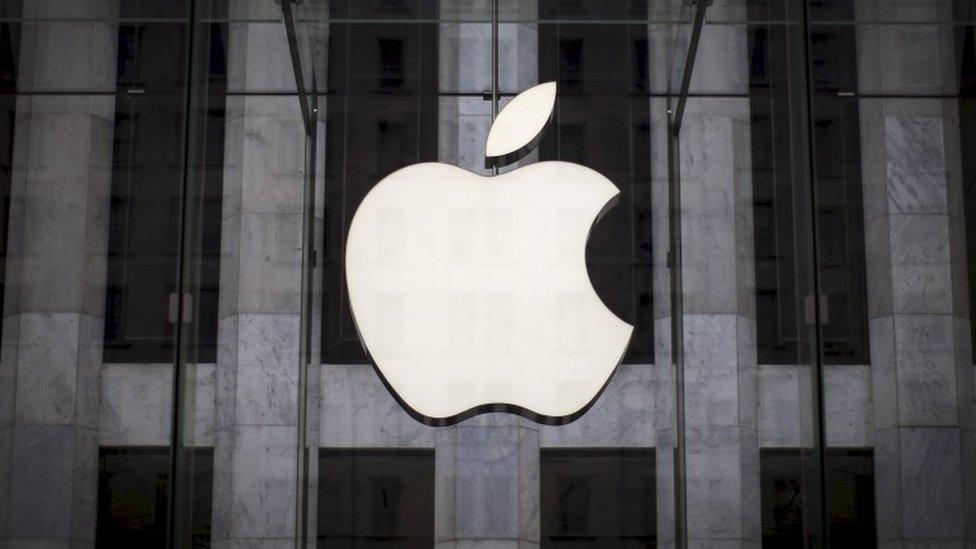Paradise Papers: Are the Crown Dependencies undemocratic?
- Published
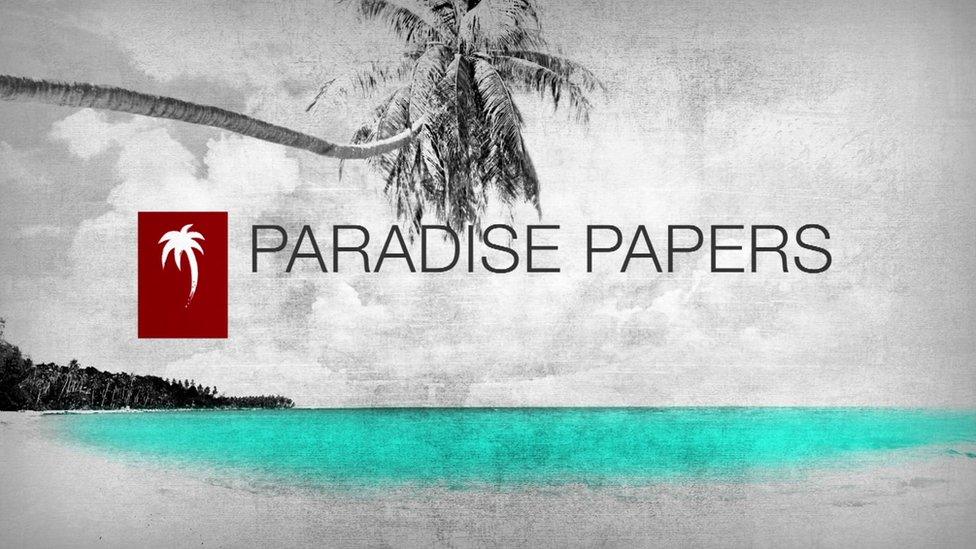
The Paradise Papers have revealed a lack of opposition parties in Britain's Crown Dependencies featured in Apple's decisions on where to hold its offshore cash.
The Isle of Man, Guernsey and Jersey all offer low rates of taxation to entice businesses and wealthy individuals, marketing themselves as "politically stable".
In Jersey - where Apple held some of its profits - the only political party says the system is "fundamentally undemocratic", and needs to change.
With the UK ultimately responsible for the dependencies' international relations and defence, could Westminster-style party politics make them less attractive to firms looking to base offshore tax schemes in the islands?
A BBC Panorama investigation showed correspondence from March 2014 between multinational corporation Apple's legal team and the offshore law firm, Appleby.
Apple asked what benefits different offshore jurisdictions - the British Virgin Islands, Bermuda, the Cayman Islands, Mauritius, the Isle of Man, Jersey and Guernsey - could offer as a destination for its untaxed offshore cash.
The document relating to the Isle of Man was the only one to be revealed in the leak.
Apple has said it is the world's largest taxpayer, paying about $35bn (£26bn) in corporation tax over the past three years, it abides by the law and its changes "did not reduce our tax payments in any country".
In a further statement the company, external stressed no operations or investments had been moved from its European HQ in Ireland.
The Jersey Financial Services Commission said in a statement, external: "The two Apple subsidiaries referred to by the media are not Jersey-registered companies and our understanding is that Apple funds relating to these entities have not been remitted to or held in the island."
Source document: Apple questionnaire (extract)
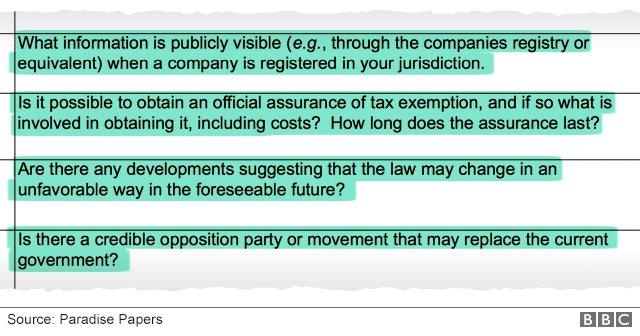
When asked by Apple if there was a "credible opposition party or movement" that could replace the Isle of Man's government, Appleby responded: "No."
Appleby added: "Most Isle of Man politicians stand for election independently instead of as representatives of political parties; there is no viable party politics.
"Political parties do exist but their influence is nominal, currently four members of a representative house of 24 (House of Keys).
"Governments are formed immediately after an election by nominations made by the chief minister who is himself elected by the members of the House of Keys."
Journalist and former tax inspector Richard Brooks said this kind of questioning by Apple was "like someone looking for the venue of a wedding".
He added that he considered Appleby's comments regarding the Isle of Man were the equivalent of saying "don't worry, there's no democracy here".
The BBC approached party-affiliated and independent politicians from all the Crown Dependencies for their views.
Sam Mezec, leader of Reform Jersey, the only political party in the Channel Islands, said the idea of the island having a "stable government system" used by companies to attract foreign investment was in his view "mis-selling".
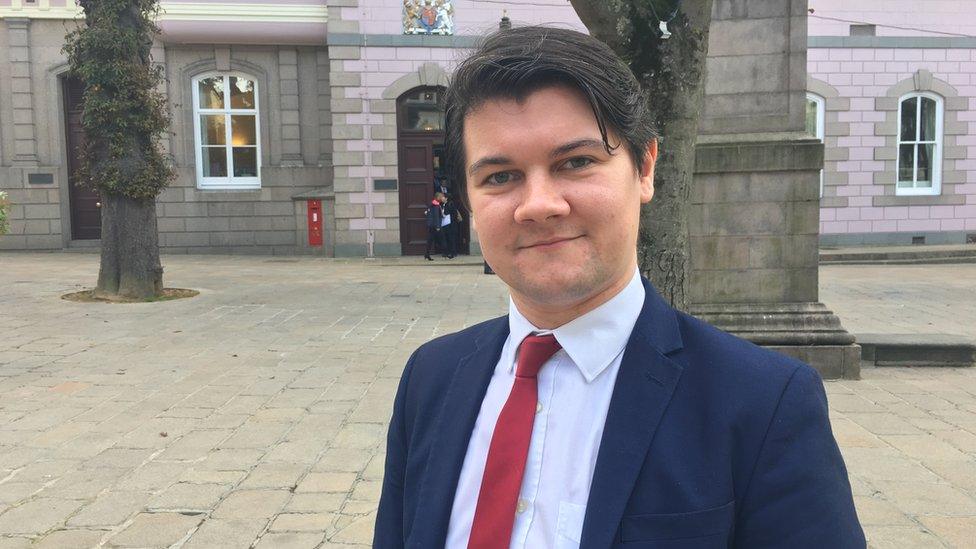
Reform Jersey, led by Sam Mezec, has three party members in the States of Jersey
"What they mean by this is that it is incredibly difficult for Jersey people to change their government," he said.
"Our voting system and the lack of a clear party system means it is not possible for voters to know how they can replace a government if they are not happy with the way they are running the island.
"They tell foreign investors that they can more or less expect the same policies and priorities in perpetuity in the island because there is no periodic change."
He added: "This is fundamentally undemocratic, and actually comes across to many outside the island as being dodgy."
Lawrie Hooper, deputy leader of Liberal Vannin - the party referred to in Appleby's response about politics in the Isle of Man - said the view there was no viable party politics in the dependency was a "common view shared by many islanders", but the party had "no concerns" about Appleby's observations.
However, he added, the party did "completely refute" the suggestion that parties had a "nominal influence", highlighting the party had a member in the council of ministers (the executive branch of the government) and in positions across government departments.
He also said the party had "far more influence" than any independent member of the Tynwald, the island's parliament.
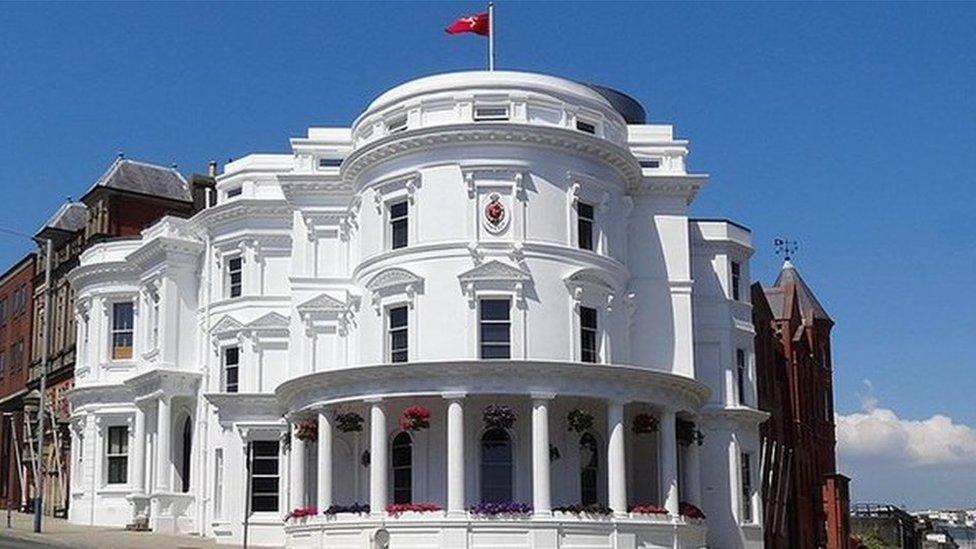
Tynwald, the Isle of Man's legislative house
Some independent politicians in the islands have emphasised a lack of party politics does not mean governments are not "challenged".
Deputy Matt Fallaize from Guernsey, the only one of the Crown Dependencies without any party politics, said the island was known to have a "stable government".
He said the political system did perhaps reduce the risk of "quick swings in one policy direction or another" from the island's government, the States of Guernsey, and lessen the chances of "contracts or legal agreements being terminated" by successive governments.
But, he added, this did not imply the government was not held to account, which happened in scrutiny panels and in the island's assembly chamber.
Similarly, Constable Len Norman from Jersey said the structure of the island's political systems allowed for "built-in opposition" without parties.
"Unlike most other jurisdictions, the Jersey government, by law, is always in a minority in the States assembly", he said.
This is a reference to the "Troy rule, external", meaning out of 50 states members, only 20 may hold government positions.

How do the parliaments of the Crown Dependencies compare to the UK?
Breakdown of voting members of each legislative branch:

Why are things different in the Crown Dependencies?
Dr Adrian Lee, an expert on the politics of smaller island nations and former professor at Plymouth University, said the differences between the UK and the Crown Dependencies could be put down to a "strong sense of identity" passed down from the medieval "survivor state" origins of each government.
The States of Jersey, external and Guernsey claim political heritage from the feudal system of the Normans, whereas the Isle of Man, external traces the origins of its parliament, the Tynwald, back to the Vikings.
Dr Lee said the islands also lack the "colonial administration" seen in the British Overseas Territories such as Bermuda and Gibraltar, which gave those countries clearer lines for "divided political thought" based on ethnic and cultural differences.
Deputy Mezec says in the current political system decisions are made "behind closed doors" and with "little control from the public".
He said Jersey could see larger parties forming, but only if there was a political "threat" to the current system of government.
In Guernsey, Mr Fallaize said although there was some support for party politics, it was generally seen as "actively disadvantageous" to States members.
'Challenge everything'
He added that some members felt they had more influence by being "unaffiliated" in the assembly, and any transition to a party system could be "messy".
Mr Fallaize said although there was no current call for a shake-up of island politics, voting reform and changes to the population of Guernsey could see it happen in the future.
Kate Beecroft, the leader of Liberal Vannin and the Health and Social Services Minister for the Isle of Man, said she was trying to fight stigma from islanders against her party.
She says their reputation has suffered by being associated with the rowdiness of Westminster politics.
"They think you are just going to challenge everything because you can," she said.
Her party is the only one with elected members in the island's House of Keys, and is the only party in the Crown Dependencies to have a member of a political party hold a role in government.
Mrs Beecroft says islanders are "used to" being represented by independent members.
She says she is hopeful her role in government will prove to voters a party system can work, and the added accountability of affiliated members will appeal to the electorate.
- Published5 April 2016
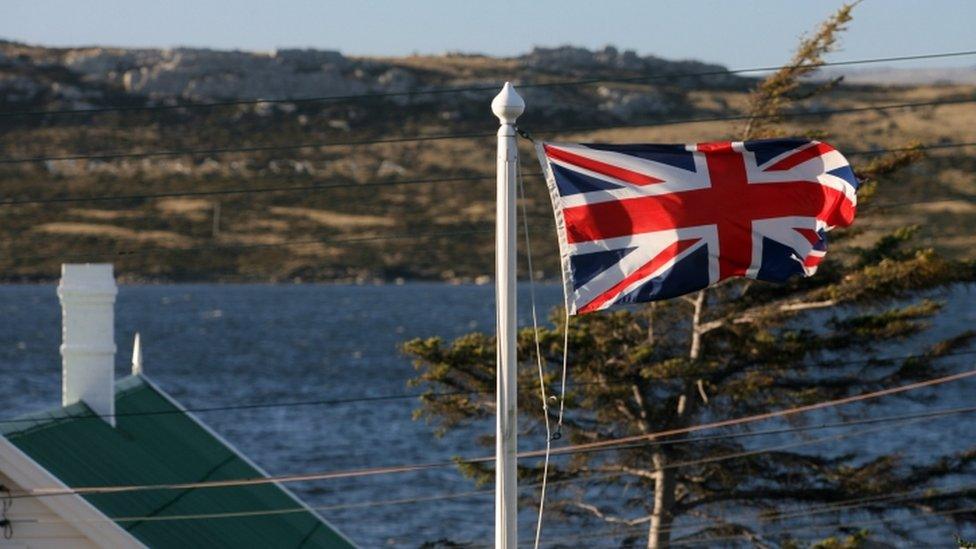
- Published10 November 2017
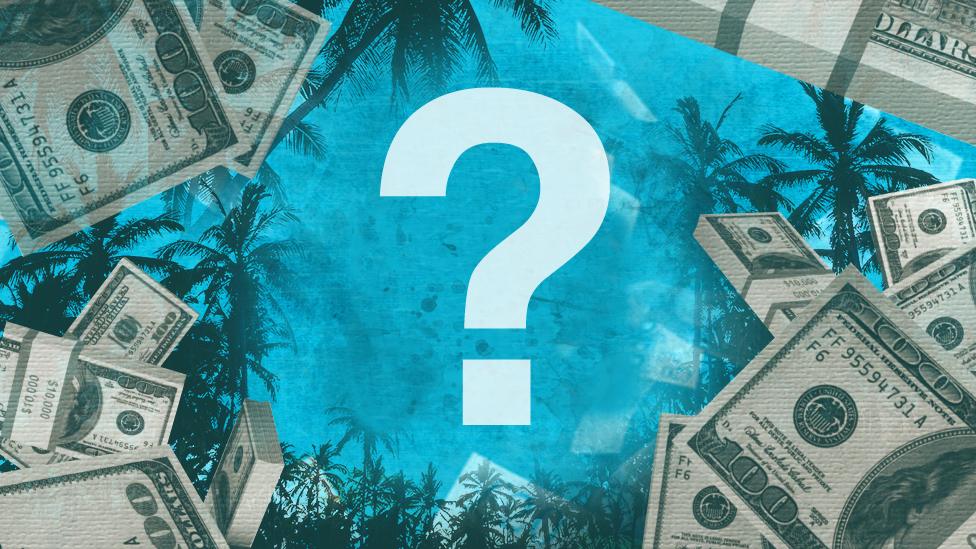
- Published8 November 2017
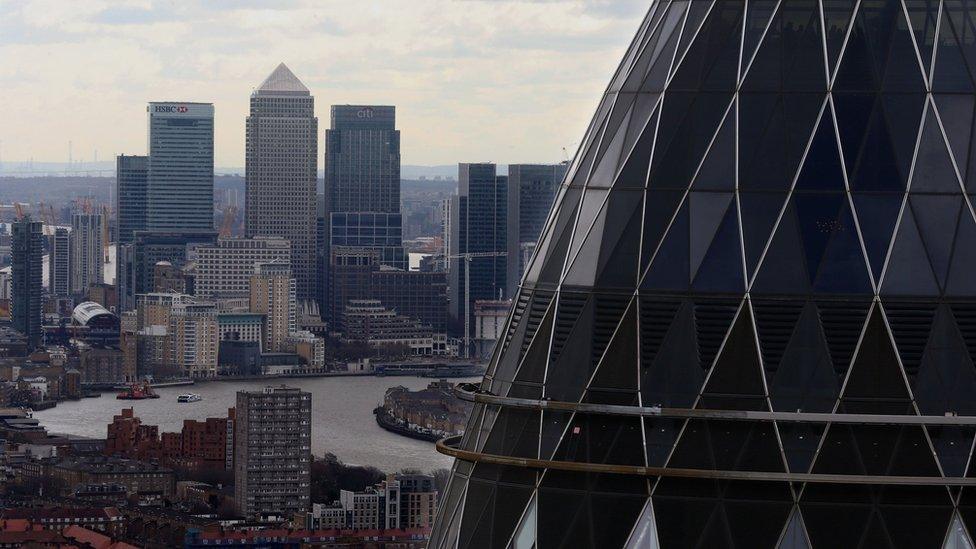
- Published6 November 2017
